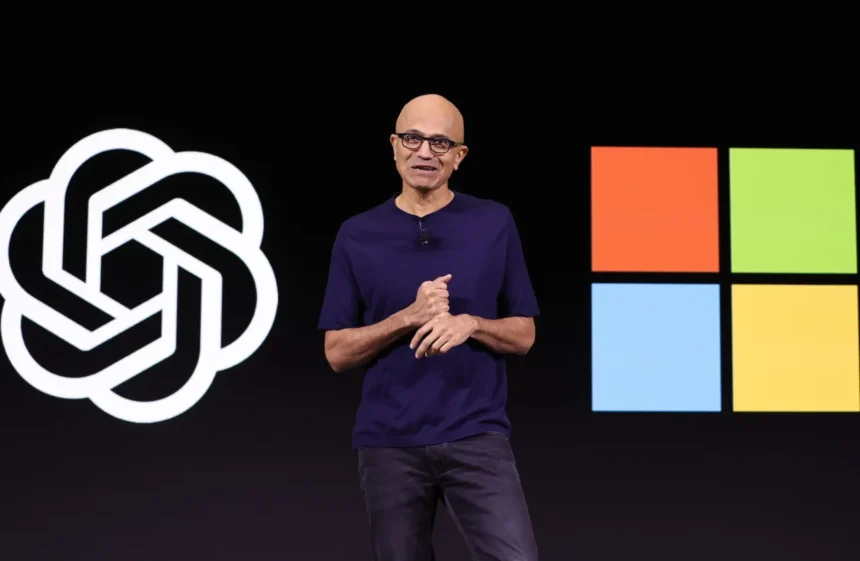Microsoft has entered the ranks of tech giants under heightened scrutiny in Germany. On Monday, the country’s Federal Cartel Office (FCO) confirmed that the software giant is now subject to a special abuse control regime. This designation places Microsoft in a unique position, granting the German competition authority the power to closely monitor and intervene in its activities, especially in areas where its dominance may hinder competition—such as its expanding role in artificial intelligence (AI).
This five-year designation is significant. It means that if the FCO determines Microsoft is engaging in anti-competitive behavior, it can take swift action to impose restrictions. This increased oversight arrives at a critical moment, as Microsoft’s growing influence in the generative AI space draws increased attention from regulators worldwide.
Microsoft and OpenAI Under the Microscope
The close partnership between Microsoft and OpenAI has not gone unnoticed. Microsoft’s deep ties with OpenAI, which even saw it briefly employ CEO Sam Altman and other key staffers during a boardroom dispute in late 2023, have raised concerns about potential market distortions. Although Altman returned to OpenAI, and Microsoft relinquished its board observer role this summer, their relationship remains a focal point for regulators.
The FCO has already examined the partnership between Microsoft and OpenAI, determining in November 2023 that their cooperation did not meet the criteria for a traditional merger review. But now, with new powers granted under Germany’s 2021 antitrust law, the FCO has a broader scope to intervene proactively. Microsoft’s dealings with OpenAI, particularly in the AI space, may face closer scrutiny in Germany moving forward.
AI and the Cloud: Microsoft’s Growing Influence
One area the FCO is particularly interested in is Microsoft’s use of AI within its ecosystem, especially through its Copilot AI assistant, which is now embedded across a wide range of Microsoft products. The regulator notes that Microsoft’s strength in cloud computing has enabled it to enter into partnerships with highly innovative AI providers. By offering their AI models as services on its Azure cloud platform, Microsoft is able to integrate cutting-edge AI solutions directly into its own products, further consolidating its market position.
Andreas Mundt, president of the FCO, emphasized in a statement that Microsoft’s dominance has only grown stronger over time. “Microsoft’s ecosystem is more interconnected than ever, with cloud and AI technologies playing pivotal roles in its continued expansion,” he said. “These technologies have become cornerstones in how Microsoft not only develops its own products but also partners with other suppliers.”
New Powers for the FCO Under Germany’s Antitrust Laws
The FCO’s investigation into Microsoft’s market power began in March 2023. Now that Microsoft has been officially designated as having “paramount significance for competition across markets,” the FCO has unlocked a range of new powers under the updated German antitrust framework. This 2021 reform was specifically designed to tackle the outsized market influence of Big Tech companies, addressing concerns that their dominance stifles innovation and prevents smaller rivals from competing effectively.
This special abuse control regime is not limited to Microsoft. The FCO has already applied it to other tech giants, including Amazon, Apple, Google, and Meta. Germany’s law even predates the European Union’s Digital Markets Act (DMA), which was designed to rein in Big Tech across the continent. However, while the DMA places operational controls on specific platforms, Germany’s approach is broader. The FCO can impose restrictions on Microsoft as a whole, not just on individual platforms or services. This gives the German authority more flexibility to address concerns, including those related to AI.
AI in Focus: A Broader Reach Than the EU’s DMA
The rise of generative AI technologies, such as ChatGPT, has added a new dimension to regulatory discussions. The EU’s DMA, drafted before AI’s boom, designates Microsoft as a gatekeeper, but only regulates two of its platforms—Windows and LinkedIn. This limits the European Commission’s ability to intervene in Microsoft’s AI ventures unless they are directly linked to these core platform services.
In contrast, the FCO’s designation covers Microsoft as an entire entity. Andreas Mundt highlighted this difference, stating, “Our decision applies to Microsoft as a whole, not only to individual services or products. Based on our decision, we can stop anti-competitive practices that are not covered by the DMA.”
This broader reach allows Germany to more closely scrutinize Microsoft’s AI ventures, ensuring that its dominance in this critical technology does not stifle competition or innovation.
Microsoft’s Response: Commitment to Fair Competition
In response to the FCO’s designation, Microsoft has expressed its intention to cooperate with the German regulator. Microsoft spokeswoman Sophie Thomas said in a statement, “We recognize our responsibility to support a healthy competitive environment and we will strive to be proactive, collaborative, and responsible in working with the Bundeskartellamt [FCO]. Microsoft is partnering with Germany’s most innovative companies, and we’re committed to investing in the growth of its digital economy.”
As Microsoft continues to expand its influence in AI, cloud computing, and software, the scrutiny from Germany’s competition authority signals a new era of oversight for the tech giant. With the FCO now empowered to take action if necessary, Microsoft’s future in Europe may be shaped not only by its innovations but by its ability to navigate an increasingly complex regulatory landscape.
Conclusion
Germany’s heightened scrutiny of Microsoft signals a broader regulatory trend in Europe, where Big Tech is increasingly held accountable for its market dominance. As the competition authority prepares to examine Microsoft’s influence over AI and other technologies, the next few years could see significant interventions if the FCO deems Microsoft’s practices anti-competitive. This move, combined with similar efforts across the EU, underscores the growing role of regulators in shaping the future of digital markets.










